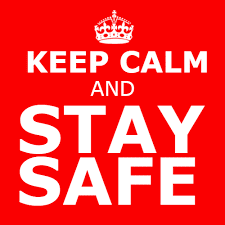State of Mind know that maintaining your mental fitness during the current Coronavirus pandemic is going to crucial for lots of people

Taking part in and watching sport has been almost removed from the UK in the past week so how can you help to look after yourself and your family in the next few weeks when people will be feeling frightened and more anxious.
If you are at home:
The government is now advising us to avoid all but essential social contact. This will mean that more of us will be spending a lot of time at home and many of our regular social activities will no longer be available to us. It will help to try and see it as a different period of time in your life, and not necessarily a bad one, even if you didn’t choose it.
You may have a chance to be in touch with others in different ways than usual. Be in touch with other people regularly on social media, e-mail or on the phone, as they are still good ways of being close to the people who matter to you. Try a new daily routine that prioritises looking after yourself.
You could try reading more or watching movies or old rugby games, having an exercise routine, trying new relaxation techniques, or finding new knowledge on the internet. Try and rest and view this as a new if unusual experience, that might have its benefits. Make sure your wider health needs are being looked after such as having enough prescription medicines available to you.

Try to avoid speculation and look up reputable sources on the outbreak
Rumour and speculation can fuel anxiety. Having access to good quality information about the virus can help you feel more in control, try looking at www.gov.uk or Health Protection Scotland or Public Health Wales
Follow hygiene advice such as washing your hands more often than usual, for 20 seconds with soap and hot water. You should do this whenever you get home or into work, blow your nose, sneeze or cough, eat or handle food. If you can’t wash your hands straightaway, use hand sanitiser and then wash them at the next opportunity.
You should also use tissues if you sneeze and make sure you dispose of them quickly; and stay at home if you are feeling unwell.
Try to stay connected
At times of stress, we work better in company and with support. Try and keep in touch with your friends and family, by telephone, email or social media, or contact a helpline for emotional support. You may like to focus on the things you can do if you feel able to: keep active, manage stress levels and try to eat a balanced diet
◾eat a balanced diet
Stay in touch with friends on social media but try not to sensationalise things. If you are sharing content, use this from trusted sources, and remember that your friends might be worried too. Also remember to regularly assess your social media activity. Tune in with yourself and ask if they need to be adjusted. Are there particular accounts or people that are increasing your worry or anxiety? Consider muting or unfollowing accounts or hashtags that cause you to feel anxious.
If you have been in touch with Offload sessions, check out what support is available, through the clubs social media links to see what support is available online www.rugbyleaguecares.org/what-we-do/health-and-wellbeing/offload/what-is-offload/

Talk to your children
Involving family and children in our plans for good health is essential. We need be alert to and ask children what they have heard about the outbreak and support them, without causing them alarm. We need to minimise the negative impact it has on our children and explain the facts to them. Discuss the news with them but try and avoid over-exposure to coverage of the virus. Be as truthful as possible. Let’s not avoid the ‘scary topic’ but engage in a way that is appropriate for them. We have more advice on talking with your children about world news.
Try to anticipate distress
It is OK to feel vulnerable and overwhelmed as we read news about the outbreak, especially if you have experienced trauma or a mental health problem in the past, or if you have a long-term physical health condition that makes you more vulnerable to the effects of the coronavirus. It’s important to acknowledge these feelings and remind each other to look after our physical and mental health. We should also be aware of and avoid increasing habits that may not be helpful in the long term, like smoking and drinking.
If you know someone who needs help and support then they can access the link from our website here stateofmindsport.org/support/
Try and reassure people you know who may be worried and check in with people who you know are living alone.
Try to manage how you follow the outbreak in the media
There is extensive news coverage about the outbreak. If you find that the news is causing you huge stress, it’s important to find a balance.
It’s best that you don’t avoid all news and that you keep informing and educating yourself, but limit your news intake if it is bothering you.
The Mental Health Foundation is part of the national mental health response providing support to address the mental health and psychosocial aspects of the Coronavirus outbreak, alongside colleagues at Public Health England and the Department of Health and Social Care.www.mentalhealth.org.uk/publications/looking-after-your-mental-health-during-coronavirus-outbreak

